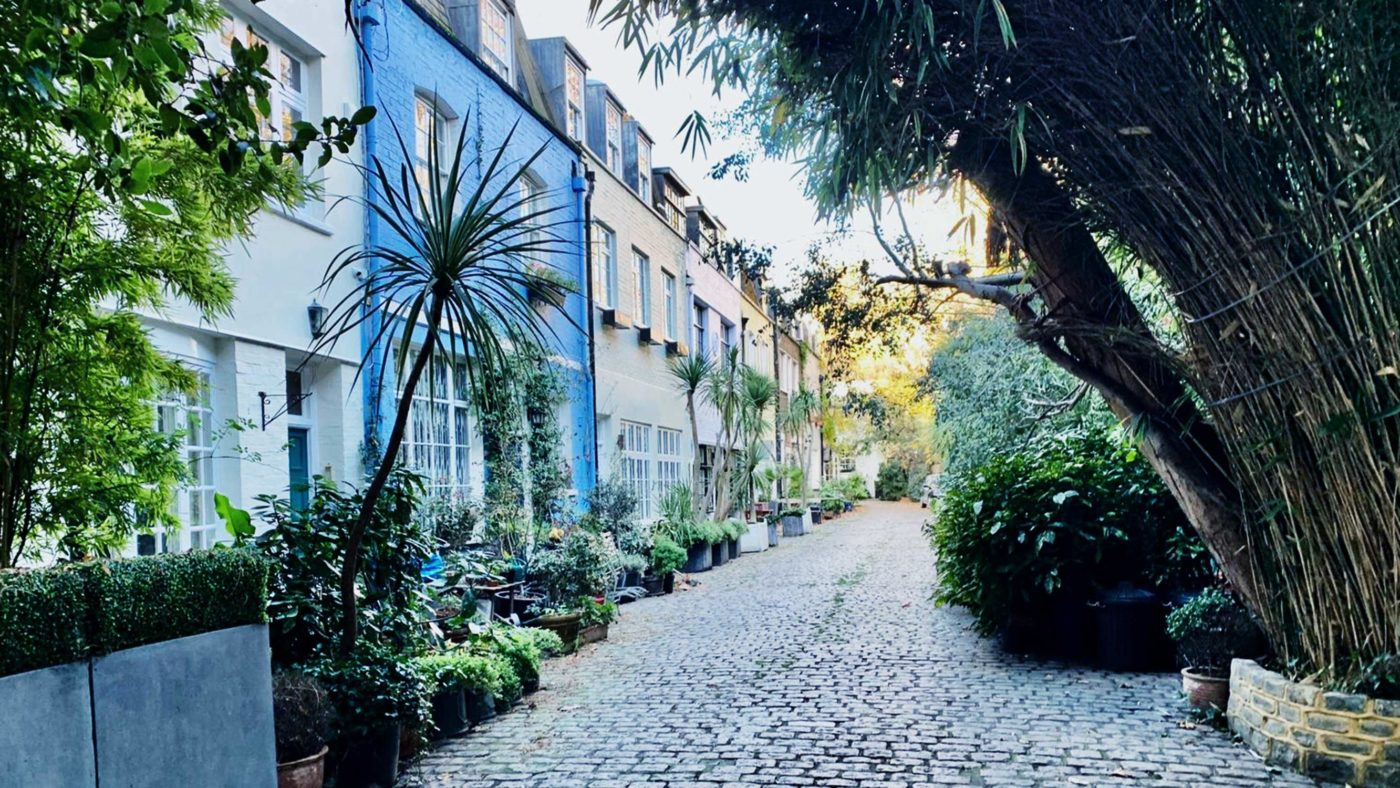Britain needs more homes. This is such a commonplace that I have doubtless started articles with that four word sentence before. But although this has been widely accepted as a commonplace for years – decades even – Britain still needs more homes. I believe this is because policymakers have not found policies that deliver new homes without upsetting voters. Today’s new paper from Create Streets, ‘Create Mews’, offers a way forward.
Despite broad support for more housebuilding in theory, the rate at which we have built in the places where people most want to live has profoundly undershot demand for many decades, leading to a vast and growing wedge between the cost of building and the price of housing. That failure has turned housing into a scarce speculative good like gold or fine art, and left people with excessively small homes and excessively long commutes. In many cases, where public transport is less extensive, it has priced them out altogether.
But Britain is not America. None of its cities are surrounded by endless unoccupied space, and there is precious little pure wilderness within reach of them. England in particular is a long-urbanised country, more densely populated than most others. This means a dearth of ready places for new homes that are not already next to someone, and even fewer places near the existing urban agglomerations with the best opportunities and amenities.
This has made it hard to deliver the homes we all know we need, because building new housing near existing communities tends to impose burdens on those communities. If parking and driving are poorly managed, there may be extra congestion. If we stack new homes into a tall tower it will likely provoke dissent from some of the swathes of people who can see it. If it is built using traditional construction methods then it will probably create noise, vibration, and disturbance for locals. And if supply of school places and doctors does not adjust flexibly – as we all know it often does not – it will be harder to find a school for offspring or appointments with a GP.
Last year, Samuel Hughes and Ben Southwood produced ‘Strong Suburbs’, which received an enthusiastic cross-party response and whose proposals have been described as ‘cracking’ by Michael Gove. Few thought they could find another idea of such potential and popularity, but Create Mews seems to have done just that. It comes with a foreword from Sir Simon Jenkins and endorsements from no fewer than 53 of the foremost figures in English planning reform.
Locals object to housing imposed from the outside. But in places around the world as diverse as Vancouver, Houston, Tel Aviv, or Seoul, locals have voted for permitting more housing, when they were given control and the lion’s share of the upside.
‘Create Mews’ develops the street votes proposal set out in ‘Strong Suburbs’. This new report proposes giving residents of blocks of houses forming a perimeter around an area of land the power to vote to do more with the service alleys, sheds, garages and waste land within that perimeter.
In many cases these alleys have become dilapidated, and they are often a serious security hazard. The garages are too small for modern cars and often used for storing junk. Because housing is so scarce in many places, the power to develop these properties into an inhabited mews would be welcome, giving new rooms for family members, space for an elderly relative, or even somewhere to rent out or sell. These streets would, in the words of Steve Baker MP, be given ‘the power to say “no” to permitting more, but a reason to say “yes”’.
We can see ‘mews’ as a convenient shorthand for walkable, sustainable, dense urbanism of the sort that is loved in historic towns and cities all over Europe. Building these kind of streets would mean less pressure on the skyline, and less pressure on green fields. Mews are inherently more walkable urban forms where pedestrians feel safer than in most streets. Tourists are so drawn to picturesque mews that they are some of the most photographed and Instagrammed parts of our cities. Put simply, mews are popular.
Britain needs more homes. But getting them is not as easy as calling for them. It’s not even as easy as convincing the Housing Secretary. Ministers have fallen with depressing regularity in recent decades for being too full-throated in their pursuit of housebuilding, without accounting for local feeling. Even if the entire political establishment agrees we should build more homes, it will be difficult to get them built without a policy that has widespread public support. Judging by the response to Create Mews today, they may have a new and workable option.
Click here to subscribe to our daily briefing – the best pieces from CapX and across the web.
CapX depends on the generosity of its readers. If you value what we do, please consider making a donation.


